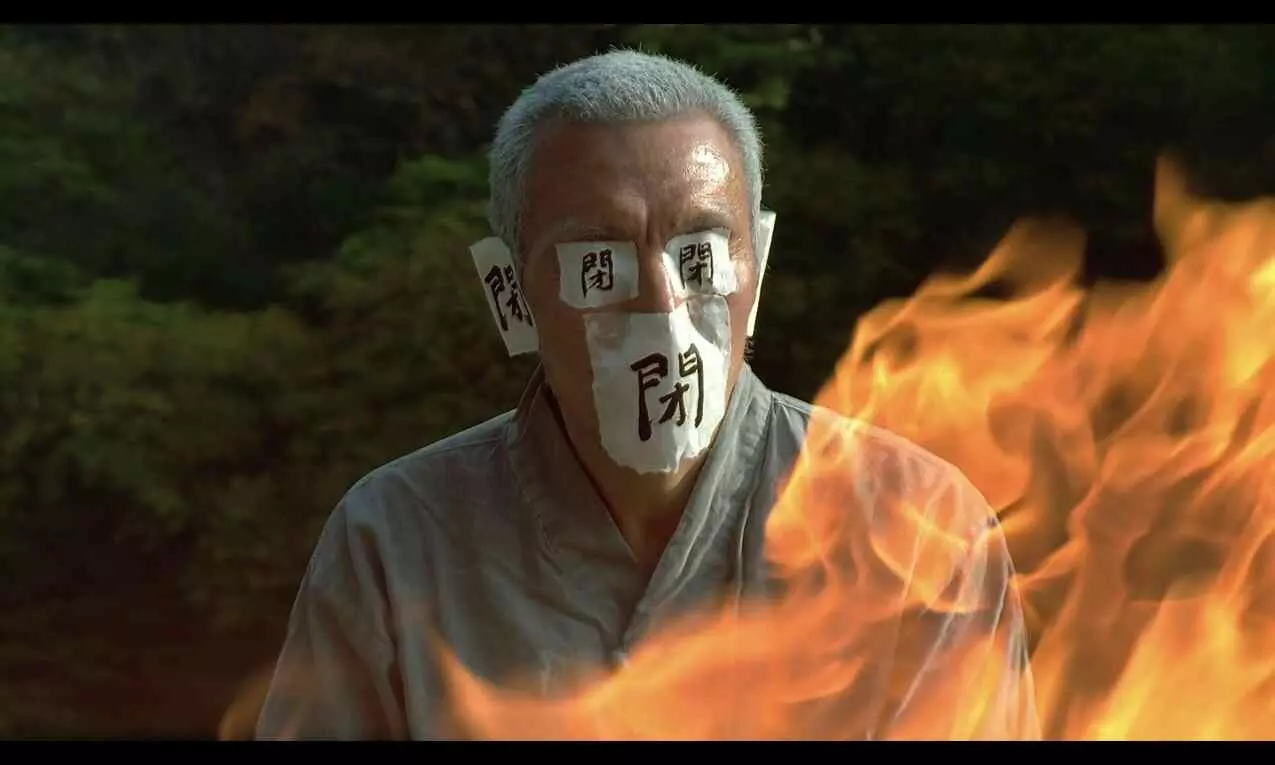Ballad Of A Human Life

Spring, Summer, Fall, Winter… and Spring (FILM)
Language: Korean
Director: Kim Ki-duk
Year of making: 2003
Direction: 4.0 star (out of 5)
Cinematography: 4.0 star (out of 5)
Sound: 3.5 star (out of 5)
Mise-en-scene: 4.0 star (out of 5)
Editing: 4.0 star (out of 5)
Acting: 3.0 star (out of 5)
Welcome to a floating Buddhist shrine on a small lake surrounded by green mountains. Low clouds hovering over the hilltops transcend a mystic serenity to the landscape. Only some chirping birds and whirring winds establish the presence of life in this blissful Korean monastery. Atop one of the hills is a large ancient statue of Lord Buddha overlooking the pond. Soon you will discover the young disciple and an old monk in the sacred place too. This is how the South Korean filmmaker Kim Ki-duk, noted for directing fiery and feisty movies, redirects his focus in 2003 to the universality of human lives.
Kim's metaphoric representation of seasons refers to the different stages of a human being. His film, 'Spring, Summer, Fall, Winter… and Spring', is about a man's journey that begins with a curious orphan wandering around the lake. But the child's playful banter causes the deaths of a fish and a snake among the other inhabitants of the place. The incident does not slip the careful eyes of the monk. The master teaches him a lesson equally violently by tying a weighty stone around his waist: "You will carry the stone in your heart for the rest of your life." This happens in the spring.
Then summer settles, with the child reaching adolescence. One day, a weary mother reaches the monastic retreat with her daughter for her spiritual cure. As the sight of the girl inflames the Adam in the boy, he ends up having his first taste of carnal pleasure. Knowing this, his master chides him: 'Lust awakens the desire to possess. And that awakens the intent to murder'. As soon as the girl leaves, besotted with her, the boy leaves the temple in a huff, only to come back in the fall as a young, angry man to hide there after murdering his wife.
Seasons change and the old monk, realising his terrestrial time is over, burns himself to death, probable salvation in Buddhist ritual. Winter falls and Kim Ki-duk appears as a man of wisdom and practises Buddhism to attain divine freedom through atonement as the cycle continues with unnamed characters in his film.
The perspective of the cinema is aesthetically captured through the lens of cinematographer Baek Dong-hyun. The shots of the overwhelming colour of the autumn maple leaves and the silvery icicles in winter, formed by the dripping water from the leaves, flowing springs and the misty atmosphere, spread the gospel of silent truth to the hearts of cinema lovers.
Known for his quirkiness in real life, Kim admitted in an interview later, about his guilt: "I've done a lot of cruelty on animals in my films. However, the people who eat these are not concerned about their slaughter."
Kim definitely was no hermit as he also ignored women in his spiritual ride but, at least once in his lifetime, he sailed his artistic voyage with elementally inescapable but complex human emotions of love, anger, repentance and liberation, before leaving for his heavenly abode on December 11, 2020.



